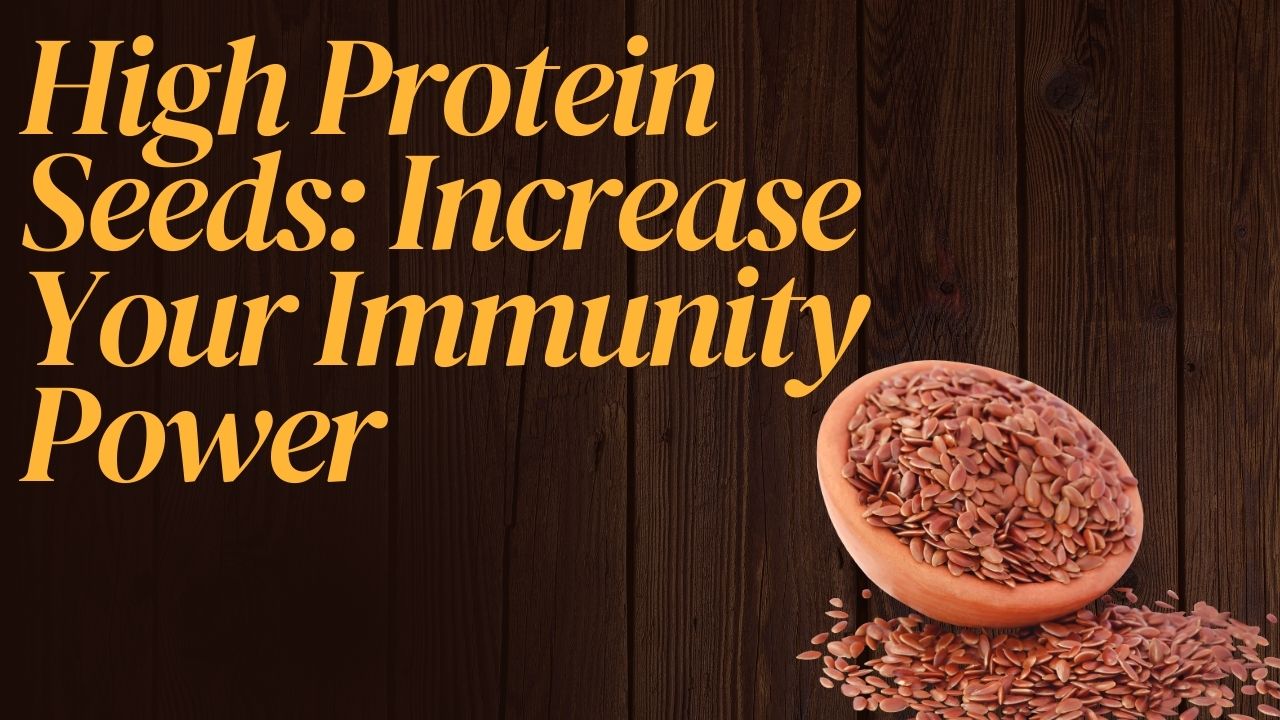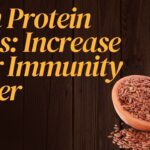Introduction
Incorporating high protein seeds into your diet is a fantastic way to enhance your immune system naturally. These seeds are not only rich in protein but also packed with essential nutrients that can help fortify your body’s defenses. This article delves into the immune-boosting properties of various seeds and provides tips on how to consume them for maximum benefits. By the end, you’ll have a comprehensive understanding of how these powerful seeds can be a game-changer for your health.
Benefits of High Protein Seeds
High protein seeds offer numerous health benefits, making them an essential addition to any diet. They are rich in vitamins, minerals, healthy fats, and antioxidants. These nutrients work together to support overall health, enhance energy levels, and promote a strong immune system.
How High Protein Seeds Boost Immunity
The immune-boosting properties of high protein seeds stem from their nutrient density. Vitamins such as vitamin E, zinc, and selenium, found in abundance in these seeds, are crucial for maintaining immune function. Additionally, the high protein content supports the production of antibodies and the repair of body tissues, further strengthening the immune system.
Types of High Protein Seeds
Chia Seeds
Chia seeds are a powerhouse of nutrients. They are rich in omega-3 fatty acids, fiber, and antioxidants. These tiny seeds help reduce inflammation and support cellular health, making them excellent for boosting immunity.
Hemp Seeds
Hemp seeds are packed with complete protein, containing all nine essential amino acids. They also provide a good dose of magnesium, zinc, and iron, which are vital for immune function.
Pumpkin Seeds
Pumpkin seeds are an excellent source of zinc, magnesium, and antioxidants. These nutrients help protect the body against oxidative stress and support immune cell function.
Flaxseeds
Flaxseeds are known for their high content of omega-3 fatty acids and lignans. These compounds have anti-inflammatory and antioxidant properties, which can enhance immune health.
Sunflower Seeds
Sunflower seeds are rich in vitamin E, selenium, and magnesium. These nutrients play a crucial role in protecting cells from damage and supporting immune responses.
Sesame Seeds
Sesame seeds offer a significant amount of protein, healthy fats, and antioxidants. They are also a good source of zinc and selenium, both of which are important for immune health.
How to Incorporate High Protein Seeds into Your Diet
Smoothies and Shakes
Adding a tablespoon of high protein seeds like chia or flaxseeds to your smoothies and shakes can boost their nutritional value without altering the taste.
Salads and Soups
Sprinkle pumpkin, sunflower, or hemp seeds on your salads and soups for added crunch and a nutrient boost.
Baking and Cooking
Incorporate seeds into your baking recipes. You can add them to bread, muffins, and even pancake batter to increase the protein content.
Snack Mixes
Create a healthy snack mix by combining various high protein seeds with nuts and dried fruits. This makes for a convenient and nutritious snack option.
Tips for Maximum Benefits
Combining Seeds for Synergy
Combining different types of seeds can provide a broader range of nutrients. For example, mixing chia, flax, and pumpkin seeds can offer a more comprehensive nutrient profile.
Proper Storage of Seeds
Store seeds in an airtight container in a cool, dark place to maintain their freshness and nutritional value. Refrigeration is recommended for seeds high in omega-3 fatty acids, like flaxseeds and chia seeds.
Organic vs Non-Organic Seeds
Choosing organic seeds ensures they are free from pesticides and chemicals. Organic seeds are often richer in nutrients and are better for overall health.
Allergies and Sensitivities
If you have allergies or sensitivities, it’s important to introduce new seeds gradually. Monitor your body’s response and consult with a healthcare professional if needed.
High Protein Seeds vs Supplements
While supplements can be beneficial, high protein seeds offer a more natural and nutrient-rich alternative. Seeds provide additional health benefits such as fiber, healthy fats, and antioxidants that supplements may lack.
The Role of High Protein Seeds in a Balanced Diet
Incorporating high protein seeds into a balanced diet can significantly enhance your overall health. They provide essential nutrients that support various bodily functions, including immune health, without the need for synthetic supplements.
The Importance of Consistency
Consistency is key when it comes to reaping the benefits of high protein seeds. Make them a regular part of your diet to ensure you receive a steady supply of the nutrients your body needs.
Combining Seeds with Other Superfoods
Pairing high protein seeds with other superfoods like berries, leafy greens, and nuts can amplify their health benefits. This combination can lead to better immune function and overall well-being.
Potential Side Effects
While high protein seeds are generally safe, overconsumption can lead to digestive issues such as bloating or gas. It’s important to consume them in moderation and as part of a varied diet.
Conclusion
Incorporating high protein seeds and premium dry fruits into your daily diet can significantly boost your immune system and overall health. By understanding the immune-boosting properties of various seeds and following the tips on how to consume them for maximum benefits, you can harness the power of these nutritional powerhouses. Make high protein seeds a regular part of your diet and enjoy the numerous health benefits they offer.






